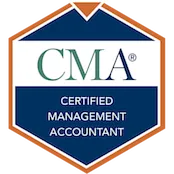
Understanding the Difference Between Tax Planning and Tax Preparation Services
When it comes to managing taxes for your small business, understanding the distinction between tax planning and tax preparation is crucial. While both services are essential to your financial health, they serve different purposes and offer unique benefits. In this post, we'll explore the key differences between tax planning and tax preparation services, helping you make informed decisions about how to best manage your business's tax needs.
What is Tax Planning?
Proactive and Strategic
Tax planning is a proactive approach to managing your tax liabilities. Instead of waiting until tax season to address your tax obligations, tax planning involves developing strategies throughout the year to minimize the amount of taxes you owe. By analyzing your financial situation and making informed decisions, tax planning helps you optimize your finances for maximum tax efficiency.
Year-Round Guidance
Unlike tax preparation, which is typically a seasonal service, tax planning is an ongoing process. It’s designed to provide year-round guidance on financial decisions that have tax implications. This might include decisions about investments, retirement planning, or structuring transactions in a way that maximizes tax benefits.
Future-Focused
Tax planning is all about the future. It considers potential changes in tax laws and regulations, anticipates life events, and adapts strategies accordingly. Whether you’re planning for the next fiscal year or looking ahead to retirement, tax planning helps you align your financial goals with your tax strategy.
Comprehensive Financial Analysis
A key component of tax planning is the comprehensive analysis of your entire financial picture. This means looking beyond just your income and expenses to consider your investments, retirement plans, and even your estate. By taking a holistic approach, tax planning ensures that all aspects of your financial life are working together to minimize your tax burden.
What is Tax Preparation?
Retrospective and Compliance-Centric
Tax preparation, on the other hand, is a retrospective service. It focuses on accurately completing and filing your tax returns for a specific tax year, based on the financial information you provide. The primary goal of tax preparation is to ensure compliance with tax laws and regulations, avoiding penalties and interest.
Seasonal Service
Tax preparation is typically offered during tax season, the time of year when individuals and businesses file their tax returns. Unlike tax planning, which is an ongoing service, tax preparation is transactional, resolving around the immediate need to file taxes.
Form-Driven Process
The tax preparation process involves gathering your financial information and inputting it into the appropriate tax forms. This form-driven process emphasizes accuracy and completeness, ensuring that all required information is reported correctly.
Historical Perspective
While tax planning looks to the future, tax preparation focuses on the past. It deals with financial transactions and activities from the previous year to determine your tax liabilities. The scope of tax preparation is generally limited to preparing and filing your tax returns, without offering recommendations for future tax savings.
Why Both Services Are Essential
Though tax planning and tax preparation are different, they are closely interconnected. The insights gained from tax planning can significantly improve the efficiency and accuracy of tax preparation. By engaging in year-round tax planning, you can make the tax preparation process smoother and more straightforward.
Tax planning helps you avoid last-minute surprises by anticipating potential tax liabilities and taking steps to mitigate them. Meanwhile, tax preparation ensures that your taxes are filed correctly and on time, preventing costly penalties and keeping your business in good standing with the IRS.
Conclusion
In summary, tax planning and tax preparation are two sides of the same coin. While tax planning is proactive, strategic, and future-focused, tax preparation is retrospective, compliance-centric, and form-driven. Both services are essential for managing your small business's tax obligations and achieving financial clarity.
By understanding the differences between these two services, you can take a more comprehensive approach to your business’s financial health. Engaging in tax planning throughout the year will not only help you minimize your tax liability but also make tax preparation a breeze when tax season rolls around. Consider partnering with a financial professional who can provide both services, ensuring that your business is well-prepared for both the present and the future.








